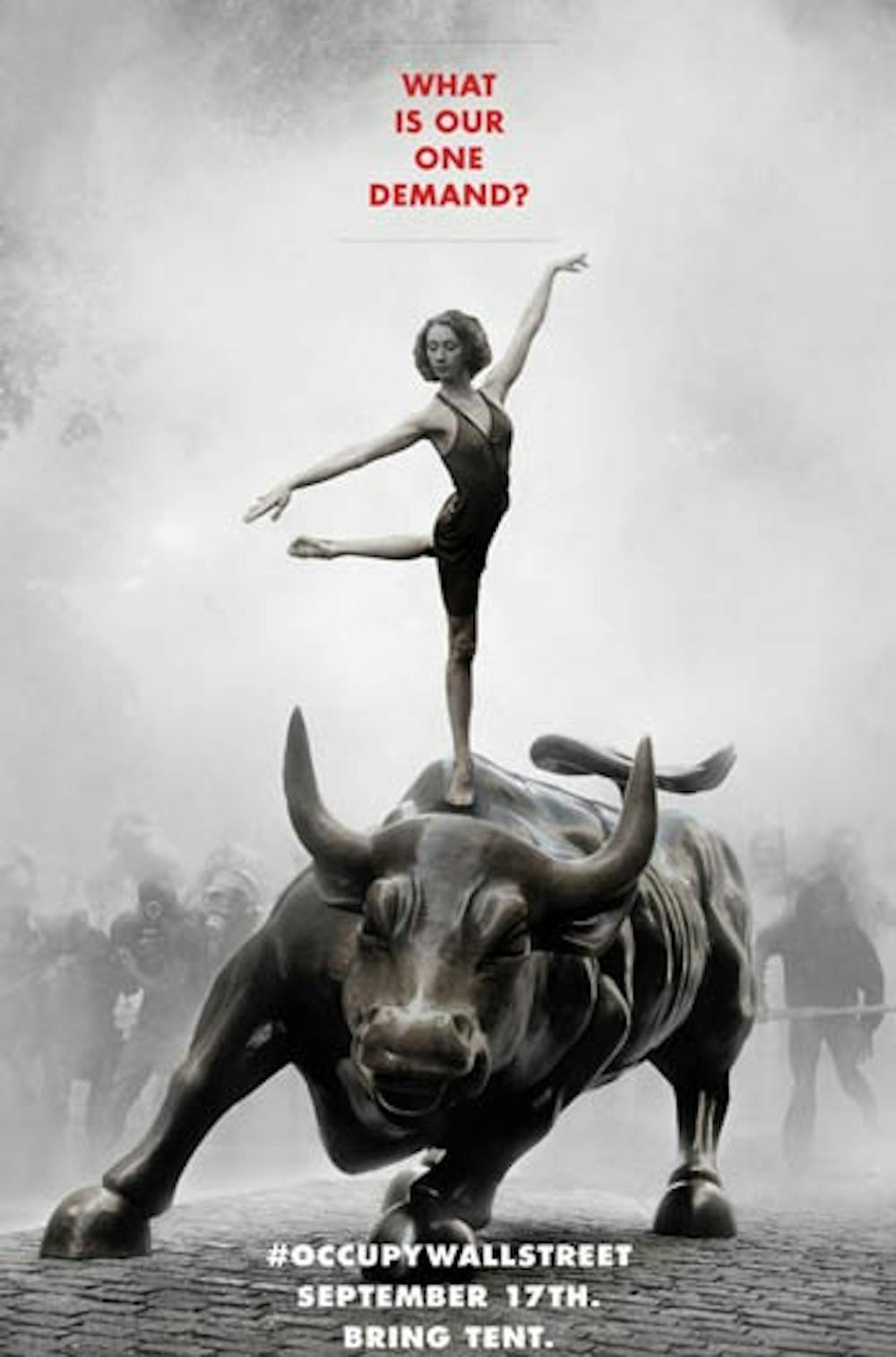How Occupy Wall Street Turns Into Occupy Walnut Street


You might by now have heard of Occupy Wall Street, an anonymous movement in New York City meant to put an end to the corrupt relationship between government and Wall Street.
Although OWS was initially dismissed by major publications as juvenile and disorganized, the demonstration has quickly gained publicity, mostly stemming from reports of police brutality. An estimated 100 people have been arrested in the last week, including a handful of Columbia students.
In the past few days, the movement has garnered many supporters, among them Michael Moore and Penn alum Noam Chomsky. Some have gone so far as to compare this protest with those of Greece and Arab nations. As much as we all love to joke about that red tower of greed that casts its long shadow over the rest of campus, the OWS movement has serious implications for us, as Penn students and millennials.
Here's the deal. Penn is great, we love it dearly, and it certainly deserves its top spot on whatever list another unoriginal journalist/statistician invents today or tomorrow. We can all agree on that. But if we're being completely honest, then we all know that without Wharton, Penn would only have half the reputation that it has today.
Sure, we make fun of everyone in their penguin suits during OCR and "OMG did you hear Fine Arts major Liz like totally sold out and works for BlackRock now?," but at the end of the day, Penn is a huge Wall Street feeder school with hundreds of graduates trickling into New York every year, and the brunt of our reputation comes from the CEOs who have Penn degrees framed on their office walls. Penn needs Wharton and Wharton needs Wall Street, so if Wall Street takes a hit, as Penn students and alumni, we all take a hit.
If you're not buying that argument, it's cool. Here's another. OWS affects more than just Wall Street, Wharton and even—gasp—Penn. In fact, this attack on Wall Street actually serves as a rallying call for all millennials.
It's important to note that the majority of protesters at OWS are Generation Y-ers just like us, and they've got the same controversial sob story you hear and read about in the news all the time. Have these millennials done everything right just to graduate at the wrong place and time into an economy tarnished by previous generations, or have these "trophy kids" simply emerged into the real world with a false sense of entitlement, quick to blame everyone and take no responsibility for themselves?
Like it or not, whether you agree with it or not, the OWS movement is a generational issue that involves all of us. If it's to be taken seriously, the movement raises important concerns like whether this is perhaps the first real opportunity for our generation to take matters into our own hands and make an influential and positive change. It awakens in us something that we've known all along: that all these years of education and practice are about to be tested; the roles are turning over and soon we'll be running the show. But how do we want it run?
Occupy Wall Street hits closer to home than we might initially think. It not only shakes the foundations of established institutions like Wall Street and Penn, but it also forces our generation to recognize the flaws in the system around us, to recognize the flaws in ourselves, and to hopefully find solutions and prove that we're more than a bunch of passive tweeting Facebook stalkers still living with our parents. No matter what we individually decide is right, OWS emphasizes the importance of having an opinion.